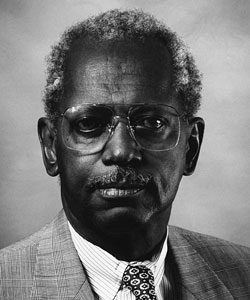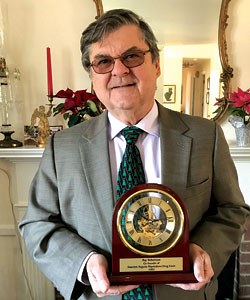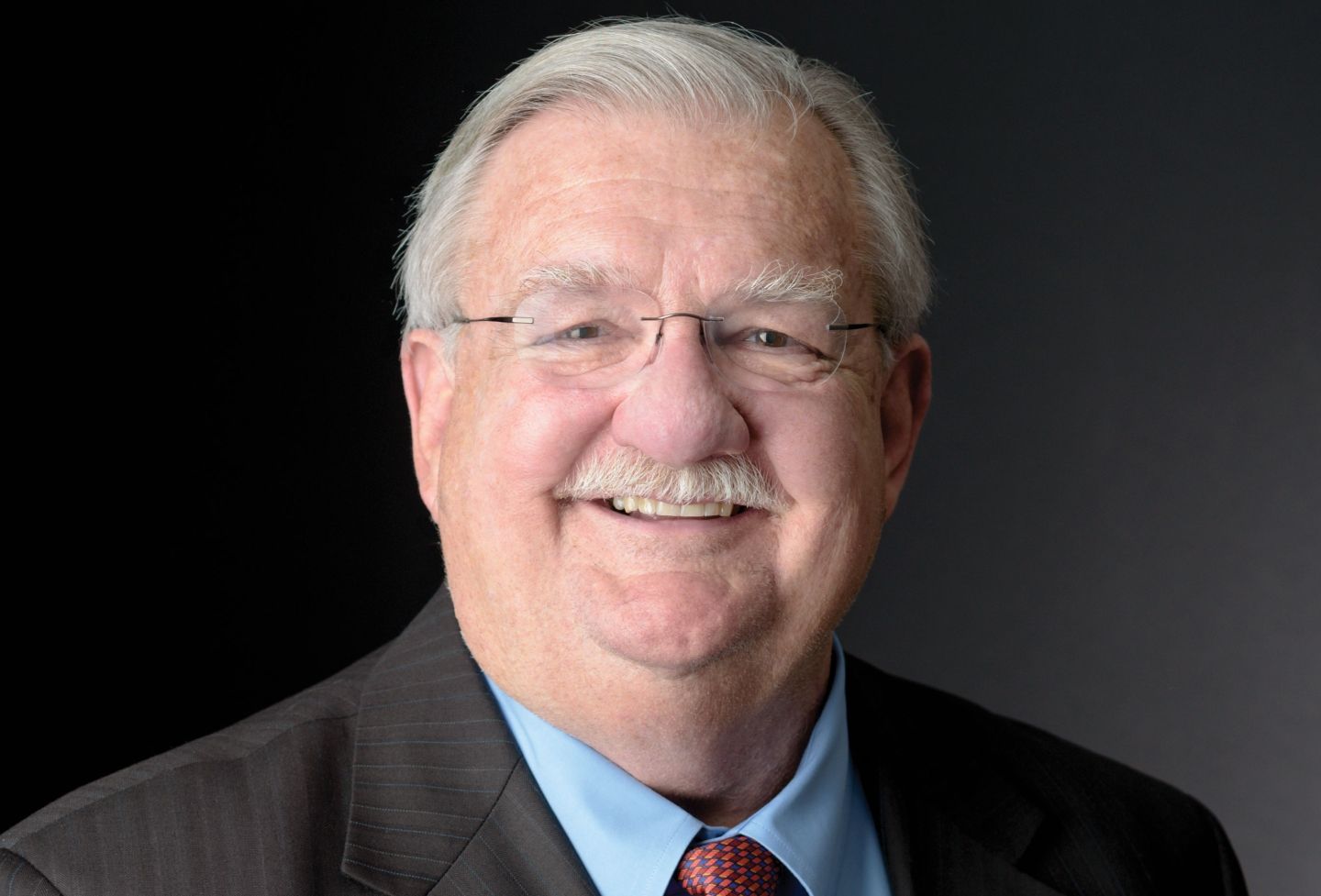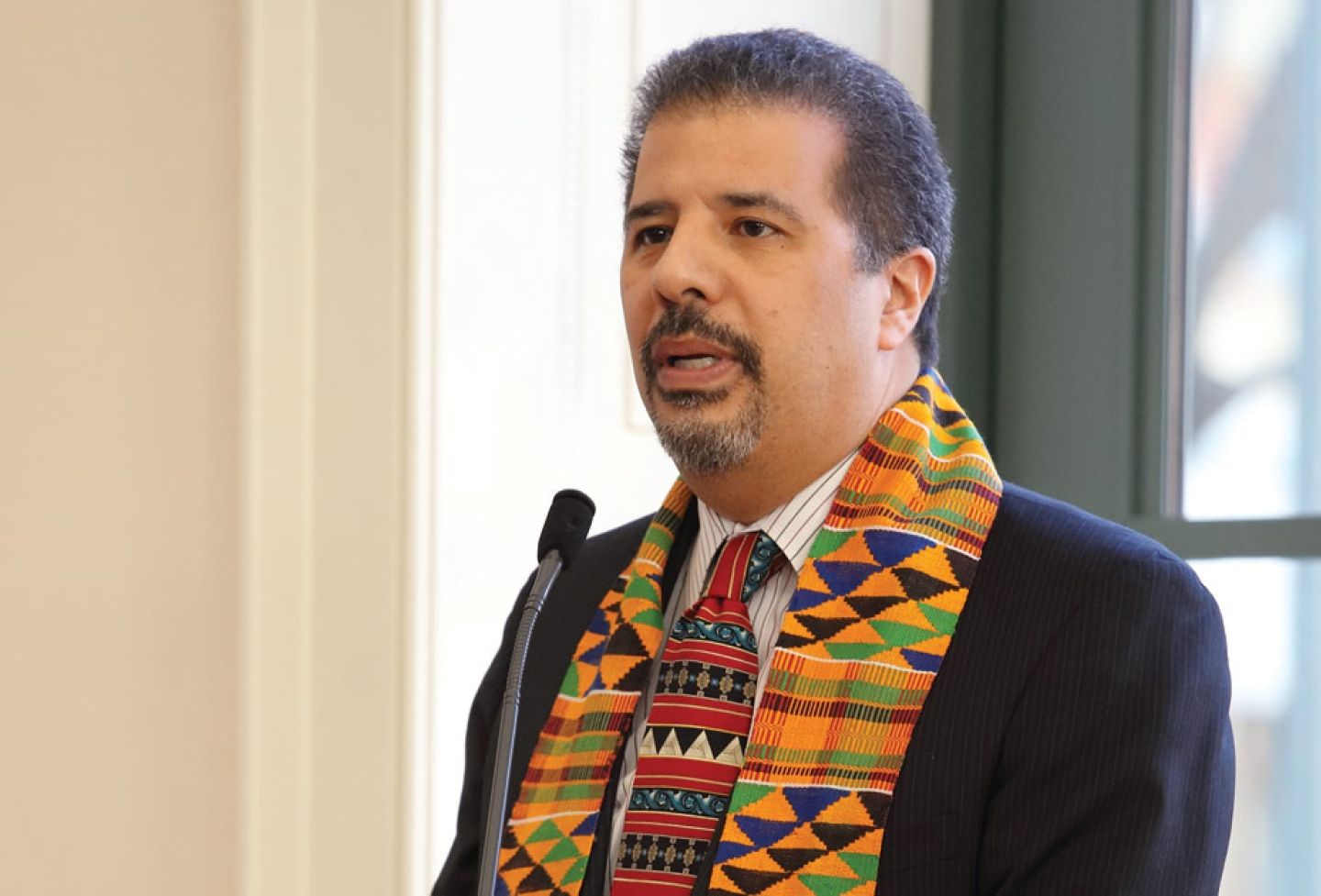Send Us Your News
To submit a class note, email us or submit mail to UVA Lawyer, University of Virginia School of Law, 580 Massie Road, Charlottesville, VA 22903. Please send your submissions no later than Aug. 1 for inclusion in the next issue.
1960
William G. Mead died peacefully Oct. 14, in Brooklyn, N.Y. Mead was born in Brooklyn and spent most of his life in Brooklyn Heights. He graduated from Amherst College before receiving his J.D. He also served as a captain in the U.S. Army Rangers. Mead was a practicing attorney for more than 35 years and worked at Haight, Gardner, Poor & Havens, Bristol-Myers and Warner-Lambert during his career. Mead and his wife, Mimi, divided their time between Brooklyn and their family home in Stillwater. A great lover of history and poetry, he was known for his intelligence, kindness and terrific sense of humor. Mead was considered by many to be a true gentleman and a man of great integrity — as well as an accomplished guitarist who could speak four languages. He was a member of the Grace Church Brooklyn Heights choir for more than 20 years and a longtime member of The University Club of New York.
R. Kenly Webster writes to thank “those who keep our class in touch,” and to say that he welcomes calls to his office in Washington, D.C.
1961
Robert L. Montague III tells us he greatly enjoyed a recent Environmental Law CLE Seminar, in spite of not needing the CLE points. He writes that he’s pleased with the Law School’s new dean and the University’s president-elect.
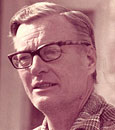 John M. Payne died Feb. 11. He was supervisory claims attorney at the Naval Legal Service office in Norfolk, Va., for nearly 31 years, the first civilian attorney to hold that position. The office grew during his time there from one attorney to 10 and became the largest claims office in the Navy. He received the Superior Civilian Service Award from the secretary of the Navy at his retirement.
John M. Payne died Feb. 11. He was supervisory claims attorney at the Naval Legal Service office in Norfolk, Va., for nearly 31 years, the first civilian attorney to hold that position. The office grew during his time there from one attorney to 10 and became the largest claims office in the Navy. He received the Superior Civilian Service Award from the secretary of the Navy at his retirement.
Payne was, as his obituary reads, “a gentleman, lawyer, mostly-true-storyteller, bird hunter, fisherman [and] one-time semipermanent student of the University of Virginia and its adjoining academic facility, the Beta House.” In addition to his law degree, he received his undergraduate degree from UVA. “Among his proudest scholarly achievements at The University was his brave stewardship of the Eli Bananas, as their Grand Banana.”
He introduced many of his friends to Highland County, Va., his favorite place in the world, “and a place many of them learned to love as much as he did.”
1962
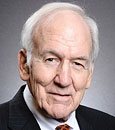 James C. Warner, of Martin, Tate, Morrow & Marston in Memphis, Tenn., was recognized as a Pillar of Excellence by the University of Memphis Law Alumni Chapter. The annual award honors a select group of area attorneys and judges who, during at least 40 years of practice, have been recognized as exhibiting the highest degree of legal skill and ethical practice, and who have made significant contributions to the legal profession by virtue of their participation and leadership in civic, charitable and bar activities.
James C. Warner, of Martin, Tate, Morrow & Marston in Memphis, Tenn., was recognized as a Pillar of Excellence by the University of Memphis Law Alumni Chapter. The annual award honors a select group of area attorneys and judges who, during at least 40 years of practice, have been recognized as exhibiting the highest degree of legal skill and ethical practice, and who have made significant contributions to the legal profession by virtue of their participation and leadership in civic, charitable and bar activities.
Warner serves as chairman of Martin Tate’s real estate section and concentrates his practice in the areas of real estate, corporate and general commercial law. He represents developers, shopping center owners, banks and other institutional lenders, landlords and tenants in all aspects of the acquisition, development, financing, leasing, and operation of retail shopping centers and malls, office buildings, warehouses, industrial sites and other commercial properties.
He served as a member of the board of directors of Bridges Inc., as chairman of the board of trustees of St. Mary’s Episcopal School in Memphis, and as international president of the Society for the Preservation and Encouragement of Barber Shop Quartet Singing in America. For the past 25 years, he has served pro bono as general counsel to Harmony Foundation International, having also served as its president.
In Memoriam: Isaac C. Hunt Jr. ’62
Former SEC Commissioner and Law Dean
A former appointee to the Securities and Exchange Commission and dean of two law schools, ISAAC C. HUNT JR. ’62 died Oct. 29 in Washington, D.C. He was 80.
Known to his friends and family as “Ike,” Hunt was UVA Law’s second black graduate. He went on to become a trailblazer in public and private practice.
President Bill Clinton nominated Hunt as a commissioner of the SEC in 1995. The Senate confirmed him the following January, and he was sworn in on Feb. 29, 1996. He was nominated again by President George W. Bush as a recess appointee and served until August 2002.
Hunt’s work at the SEC was noted for helping to better define relationships between the commission and international securities regulators.
As a public servant, Hunt also served as principal deputy general counsel and acting general counsel at the U.S. Department of the Army under the Carter and Reagan administrations.
Prior to the SEC, Hunt served for eight years as dean at the University of Akron School of Law beginning in 1987—also teaching as a professor of law for seven of those years.
Before that, he served for four years as dean and professor of law at the former Antioch School of Law in Washington, D.C., which created opportunities for numerous low-income African-Americans to enter the legal field.
He cut his teeth as a law professor at Catholic University.
In private practice, Hunt was an associate at Jones, Day, Reavis & Pogue, serving in the corporate and securities practice section. He specialized in government procurement litigation, administrative law and international trade.
Early in his career, Hunt wrote two influential reports: “The Aftermath of Disorder,” which was included as a portion of the larger report issued in 1968 by the National Advisory Commission on Civil Disorders, also known as the Kerner Commission, examining race riots in 1967; and “Minority Recruiting in the New York City Police Department,” issued in 1971 by the RAND Corp.
Hunt’s career began as a staff attorney at the SEC, where he worked from 1962-67.
During a roundtable discussion among African-American UVA Law graduates held at the Law School in 2004, Hunt said that he assumed when he started at the SEC that the federal agency would have been integrated, but he found that he was the only black lawyer on staff.
In 1998, Hunt was the first alumnus to return to the Law School through the Profiles from Practice program, which arranged visits from graduates who had achieved high distinction.
Before entering the Law School in 1959, Hunt studied architecture at Columbia University.
He also attended Fisk University in Nashville, Tenn., starting at age 15. He graduated with a double major in math and economics in 1957.
—Eric Williamson
1963
In addition to his law practice and chairing a small business in development, Kit Bond took and passed the Financial Industry Regulatory Authority Series 63 and Series 22 securities exams, in order to become a registered direct placement representative to sell renewable energy tax credits — lucrative for chapter C corporations.
1967
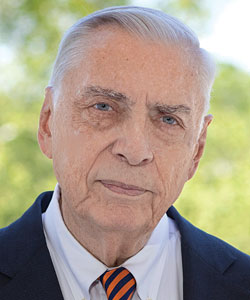 In Memoriam: John Lowe ’67
In Memoriam: John Lowe ’67
Hero of UVA Coeducation
John Lowe ’67, the attorney who argued successfully for full coeducation at the University of Virginia, died Oct. 15 due to complications from an enlarged aorta. He was 80.
Lowe, an esteemed criminal and civil liberties attorney, was still practicing law and lived in Bethesda, Md., for the last several years.
A 1967 graduate of the School of Law, Lowe achieved a long and influential list of legal victories during his storied career, not the least of which was attaining full coeducation at UVA.
He took that case to court in 1969 on behalf of high school student Virginia Scott and three other young women. The case ended in victory for Lowe and his clients. The following year, in 1970, 450 women entered the College of Arts & Sciences.
Lowe also argued and won the landmark Supreme Court case Bigelow v. Virginia, which established First Amendment protection for advertising. He convinced the very conservative Supreme Court of Virginia to strike down the Virginia Riot Act on First Amendment grounds.
He was counsel for one of two Native Americans who were charged with murdering two FBI agents on the Pine Ridge Indian Reservation in South Dakota. (The jury acquitted both defendants.)
He was the successful lead counsel in a five-month-long court-martial proceeding at Camp Lejeune, N.C., for the last POW to return from captivity in North Vietnam.
He also represented clients in personal injury and medical malpractice cases and at one time held the record for one of the highest personal injury verdicts in Richmond, Va.
After having his own private practice in Charlottesville, Lowe joined the intellectual property law firm Finnegan, Henderson, Farabow, Garrett & Dunner in Washington, D.C., in 1992, where he was a partner trying major patent infringement jury trials until he retired in 2003, in order to return to a general law practice.
Professor A. E. Dick Howard ’61 taught Lowe in the 1960s.
“It would be hard to find an alumnus who loved the University more than John did,” Howard said. “Indeed, his successful effort to bring about coeducation should be remembered, not as adversarial, but precisely because he so cherished his alma mater and wanted to see it achieve its highest destiny.”
Before enrolling at the Law School, Lowe earned a degree in chemistry at Lehigh University and spent seven years in the U.S. Army, leaving the service as a captain.
—Jane Kelly and Eric Williamson
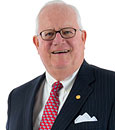 J. Rudy Austin was recognized in 2018 Benchmark Litigation. Austin practices with Gentry Locke in Roanoke, Va.
J. Rudy Austin was recognized in 2018 Benchmark Litigation. Austin practices with Gentry Locke in Roanoke, Va.
Gene Dahmen has been recognized in Best Lawyers 2018. She has also been named to the 2017 edition of Super Lawyers. Dahmen practices family law with Verrill Dana in Boston.
Stanley L. Samuels has retired from the active practice of law and closed his Norfolk, Va., law firm on March 31.
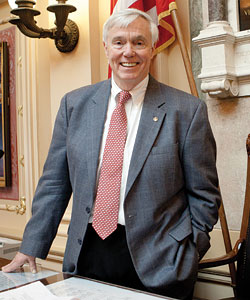 ‘Accidental Speaker,’ Howell ’67, Retires After 15 Years Over Virginia House
‘Accidental Speaker,’ Howell ’67, Retires After 15 Years Over Virginia House
Del. William J. Howell ’67 retired as the speaker of the Virginia House of Delegates. With 15 years in the House’s top leadership role, he served second-longest of any speaker in state history.
Howell announced in February of last year that he would not seek re-election. The new session in January marked the end of his tenure. Howell assumed the speakership in 2003, having first been elected as a delegate in 1987.
Nicknamed “the accidental speaker,” because the previous speaker resigned amid controversy, Howell told UVA Lawyer in 2004 that serving in the role “wasn’t something that I was seeking or ever had any inclination of wanting to do.”
But colleagues, to his surprise, suggested his name. A self-described “citizen-legislator” and a proponent of smaller government, Howell reconsidered the idea when called.
“My wife and I talked about it, prayed about it, felt led to do it, and so we did,” he said. “It’s worked out very well.”
Dubbed by the press as a “pragmatic” Republican, Howell earned a reputation as a dealmaker when necessary.
“Howell has primarily focused on promoting business-friendly policies,” the Richmond Times-Dispatch said of his career. “And he has been willing to cut deals to get things done—sometimes to the chagrin of more ideologically driven Republicans.”
He resides in Falmouth, Va., with his wife, Cessie.
Howell received a scare shortly into the new year when he had to undergo emergency heart surgery. But he recovered well, according to reports.
Colleagues sent bipartisan well wishes both after his retirement and during his recovery.
In addition to his legislative career, Howell has operated a one-man legal practice focused on estate work. His office is housed in a log cabin on the Rappahannock River.
He has two grandsons who are undergraduate students at UVA: Billy Howell, who is in his fourth year, and Jackson Howell, who is in his second year. Jackson’s sister, Ann, will be a first-year, UVA student this fall.
—Eric Williamson
1968
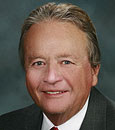 John W. Merting has been named by Marquis Who’s Who in the World to receive the Albert Nelson Marquis Lifetime Achievement Award. Merting has been listed in the publication annually since 1984. He was the first attorney to become board certified in admiralty and maritime law in all of North Florida. Merting specializes in traumatic and anoxic brain injury and other catastrophic and career-ending cases arising throughout the world. He represents seamen injured on ships and oil rigs, and recently concluded favorably a case in Singapore for a rig foreman injured off the coast of India. Merting also represents vessel crew persons injured on seagoing ships, vessels in the Great Lakes, rivers and the Intercoastal Waterway. He has successfully represented commercial and recreational divers, and persons injured on cruise ships, pleasure boats, jet skis and in parasailing incidents.
John W. Merting has been named by Marquis Who’s Who in the World to receive the Albert Nelson Marquis Lifetime Achievement Award. Merting has been listed in the publication annually since 1984. He was the first attorney to become board certified in admiralty and maritime law in all of North Florida. Merting specializes in traumatic and anoxic brain injury and other catastrophic and career-ending cases arising throughout the world. He represents seamen injured on ships and oil rigs, and recently concluded favorably a case in Singapore for a rig foreman injured off the coast of India. Merting also represents vessel crew persons injured on seagoing ships, vessels in the Great Lakes, rivers and the Intercoastal Waterway. He has successfully represented commercial and recreational divers, and persons injured on cruise ships, pleasure boats, jet skis and in parasailing incidents.
Merting was just the second plaintiff’s attorney to be elected chairman of the Southeastern Admiralty Law Institute, an organization of approximately 700 maritime lawyers, about 90 percent of whom only represent defense interests. He was recently elected to the National Brain Injury Trial Lawyers Association and the Academy of Trial Advocacy.
The Prosecution Rests:
Robertson ’68 Retires
Raymond C. Robertson ’68 retired in December after 44 years of elected service as the commonwealth’s attorney in Staunton, Va. He earned the distinction of being the second-longest serving head prosecutor in the state.
That amounts to 11 consecutive terms. He was first elected to the job in 1973, after serving two years as the sole assistant commonwealth’s attorney for Augusta County.
“I have always loved helping victims in their time of sorrow or trouble,” Robertson told The (Staunton) News Leader in anticipation of his retirement. “And I’ve always enjoyed putting the bad guys where they belong.”
Robertson tried seven capital murder cases during his career, including one in which the owner of a local dry cleaners had her throat slit during a robbery. That case made national headlines, and resulted in the 1996 execution of defendant Larry Stout.
Robertson, whose father was killed by a drunk driver, was also a leader in the fight against substance abuse and related crime. He lobbied for tougher enforcement of DUI laws and initiated prevention and rehabilitation opportunities, including the Virginia Alcohol Safety Action Program and the Staunton Drug Court.
He has written several books based on his experiences as a prosecutor.
—Eric Williamson
1969
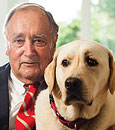 The Norfolk (Va.) SPCA announced the creation of the Thomas M. Ammons III Award for Animal Welfare, named in recognition of Thomas M. Ammons and his lifelong contributions to animal welfare. Ammons’ work as a volunteer and as a Virginia Beach General District Court Judge demonstrated care and compassion for the welfare of animals.
The Norfolk (Va.) SPCA announced the creation of the Thomas M. Ammons III Award for Animal Welfare, named in recognition of Thomas M. Ammons and his lifelong contributions to animal welfare. Ammons’ work as a volunteer and as a Virginia Beach General District Court Judge demonstrated care and compassion for the welfare of animals.
As a judge, Ammons made national headlines when he sentenced a man to jail for killing a kitten in 1989. At that time, it was unheard of and considered extremely harsh to impose jail time for the cruelty of killing an animal. Ammons was a board member of the Virginia Beach SPCA for years and volunteered regularly to help at the shelter, traveled out of state to rescue animals following Hurricane Katrina and became certified in large-animal rescue.
Gordon Schreck transitioned to retired partner status at his firm, Womble Bond Dickinson, after almost 50 years of practice in the area of admiralty and maritime law in Charleston, S.C. In February, Schreck received the Maritime Association of South Carolina’s 2018 Beacon Award, given in recognition of a career of distinguished service to the Port of Charleston and the state’s maritime industry. Schreck was also named chairman emeritus of that organization — the only former chair so honored. He continues to serve as founding chair of the Charleston Maritime Law Institute at the Charleston School of Law and is on the board of trustees at Columbia Theological Seminary in Decatur, Ga.

